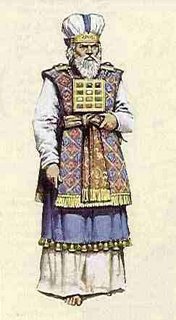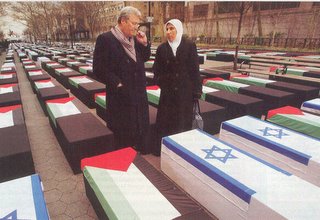
People often defend skewed Bible interpretation or worldly behavior with "the priesthood of the believer." I've challenged people's beliefs and instead of opening their Bible to counter, they claimed priesthood like someone in court pleading the fifth amendment. I have not noticed many thorough or at least precise explanations of the priesthood of the believer. You can relax, because I'm not going to give one in this small space; however, I want us to consider one point together about priesthood. It is not just a privilege, but a responsibility. People raise the privileges of priesthood regularly, but I have heard little to no mention of the responsibilities. When we examine the Old Testament priesthood as a basis of New Testament priesthood, the responsibilities of priesthood far outweigh the privileges. Don't get me wrong, being made a priest by Christ through His death, burial, resurrection, ascension, and intercession is a wonderful privilege (Revelation 1:6; 2 Peter 2:5). I can pray directly to God and study my Bible on my own. Those are wonderful privileges. That doesn't mean, however, that what I think the passage means is actually what it means. Neither does it mean that when we pray, someone shouldn't challenge the prayer.
In the Old Testament, being a priest didn't mean that you could come to God any old way you wanted or even when you wanted. It wasn't like this: "Hey, I'm a priest, and I'll mix my incense like I want." Or, "I'll offer that bullock when I'm good and ready." The priest was heavily regulated with standards. And being a priest was dangerous business for sure, certainly not fun and games. Consider Exodus 28:35, "And it shall be upon Aaron to minister: and his sound shall be heard when he goeth in unto the holy place before the LORD, and when he cometh out, that he die not." And Exodus 30:20: "When they go into the tabernacle of the congregation, they shall wash with water, that they die not; or when they come near to the altar to minister, to burn offering made by fire unto the LORD." And then Numbers 3:4: "Nadab and Abihu died before the LORD, when they offered strange fire before the LORD." Not taking responsibility could be punishable by death. There was a whole lot to do and to get it done took considerable effort and dedication.
The New Testament priesthood is the same in the way of responsibility. It is a holy priesthood, not common or profane. The priest goes to God, but he also represents God before men. He must accurately represent God to men. His offerings to God should be precise. When Nadab and Abihu offered something of their own desires, but different than what God required, God killed them. People might think or say: "I'm my own priest, so I can give Him whatever I think He would want from me. Or at least no one can stop me." The church's setting of standards under guidance of church leadership can protect a church full of priests from being profane in either its offerings to God or its representation of God. God is still serious about what we give Him. What a privilege it is to serve Him and draw near to Him, but also what a serious responsibility.


























